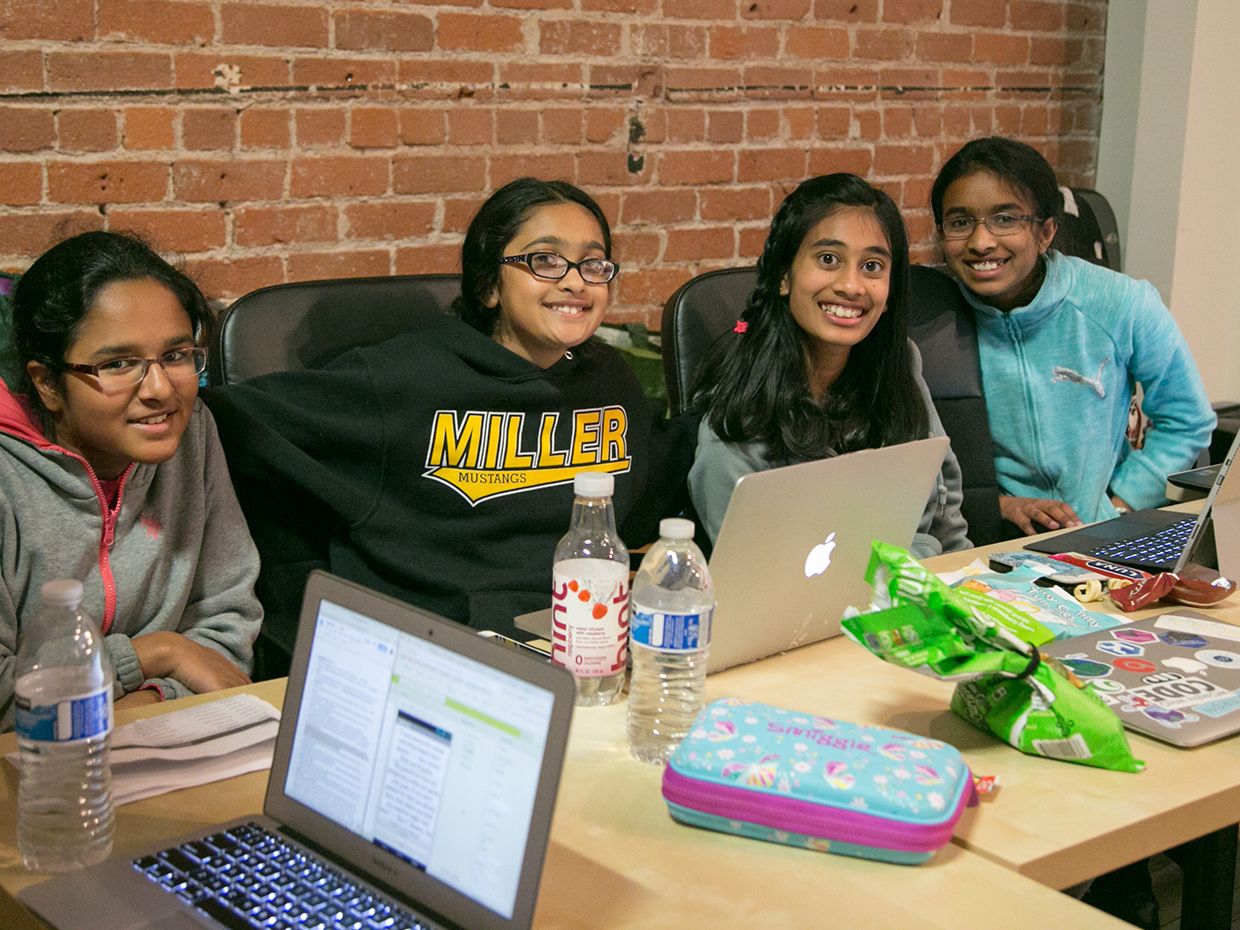“HeartOnSleeve,” “Too Tired to be Tired,” “Mood changer,” “Food for Less Thought.” If these apps sound like something a teen girl would like, that’s because they were designed by teen women—and that’s an excellent aspect for the destiny of ladies in tech.
These have been only some of the winning apps that got here out of final month’s Superposition II, a 24-hour hackathon in San Francisco for the center, excessive college, and college students who become aware of as the girl. It drew one hundred fifty hackers along with 39 mentors and 12 judges. The hackers formed 33 undertaking teams—some ahead of time on Facebook, some instant.
Areeta Wong, a pupil from San Mateo High School, began preserving those events last year, after attending the Girls Who Code Summer Immersion Program.
Areeta Wong
Photo: Janet C. Fang
Areeta Wong
Says Wong, “Females shouldn’t shy from a discipline—like I in the beginning did—due to social norms. Although Girls Who Code had possibilities, they required lengthy-term commitments; I wanted to assist ladies to get entry to possibilities faster and easier, just a weekend of freedom to analyze pc technological know-how and construct a product. I additionally desired to reveal college students exclusive fields that could merge with laptop science.”
Wong named her effort Superposition, she says, because the term refers to an idea that exists inside the global that humans ought to see to accept as true with. “Lots of humans inside the tech industry deny the gender gap; I need to be able to expose people each that it is actual, and to begin converting it,” she says.
Outreach coordinator Analise Cho says Superposition I become her first hackathon. “I’ve been very interested in laptop technological know-how maximum of my excessive college profession and took part in competitions and camps, however by no means before a hackathon,” Cho says. “Going in, I had an indistinct concept of what we would be doing, but quickly determined it blew beyond my expectancies. The tremendous and influenced surroundings, the highly useful mentors, the bond with my new crew; average it becomes a remarkable revel in and I felt happy to have experienced it!”
Cho responded to a recruitment advert for the outreach coordinator role after that experience.
These college students, I have to mention, are unbelievably professional. Cho’s regular but now not overbearing push for media coverage rose above the huge majority of public family members emails I acquire, and Wong’s concise however considerate responses had been right heading in the right direction. And I did no longer, to begin with recognizing they have been excessive school students—I had assumed they have been younger engineers already running within the field—till I went to LinkedIn to fact check this submit after writing it. The future of girls in tech looks like it’s inaccurate arms.
Here’s a roundup of the prevailing apps:
HotBot, an app that maintains users published on difficult to understand vacations, gained Best Pitch.
But lucky, an app that enables people percentage their food, received Best Use of a.T each Domain. (My son changed into named biggest mooch in his excessive school yearbook for his capability to scout out people willing to share their food, so I can verify that that is an app teenager could use.)
Optics, a system that attaches to someone’s ankle and warns of obstacles that might trip them up, won Best Hardware Hack.
VisualEyes, an app that describes the consumer’s environment and reads street symptoms for the visually impaired, won Best Use of Hasura APIs and Best College Hack.
Reality Check, a game that lets in players to test out existence choices and face virtual outcomes, won Best Game.
Cleffer, an automatic translator that may transfer track between bass and treble clef, won Best Web App.
Task a Teen, a market for contributors of a network to hire local young adults for chores, received Best Android App.
Position, an app that runs Weiszfeld’s algorithm to assist position homes and key features inside them, received Best iOS App.
HeartOnSleeve, wearables that tune and display a user’s moods and says whether they’d opt to be comforted or left by myself, received Best Social Good Hack.
La Femme, an app that connects homeless ladies with donations of female products, gained Best Female Empowerment Hack.
BrightPath, a tweak on Google Maps that optimizes routes for safety, received Most Creative Hack.
Too Tired to be Tired, an app that units interest reminders, but adjusts them relying on how exhausted the consumer already is, gained Most Innovative Hack.
FakeBook, an app that makes use of device mastering to classify news as actual or fake, won Best Beginner Hack.
MoodChanger, an app that tackles sadness or boredom with either entertaining or idea-frightening fees, received Best Middle School Hack.
Food for (Less) Thought, an app that asks a few fundamental questions and then tells you what to have for breakfast, lunch, or dinner via pulling a recipe from Yummly, received Best High School Hack. (I turned into surely inspired with this one, I’m no longer positive how deep the database is or how random the choices are, however, I do lose interest with my very own meal thoughts, and this got here up with some outstanding options.)

